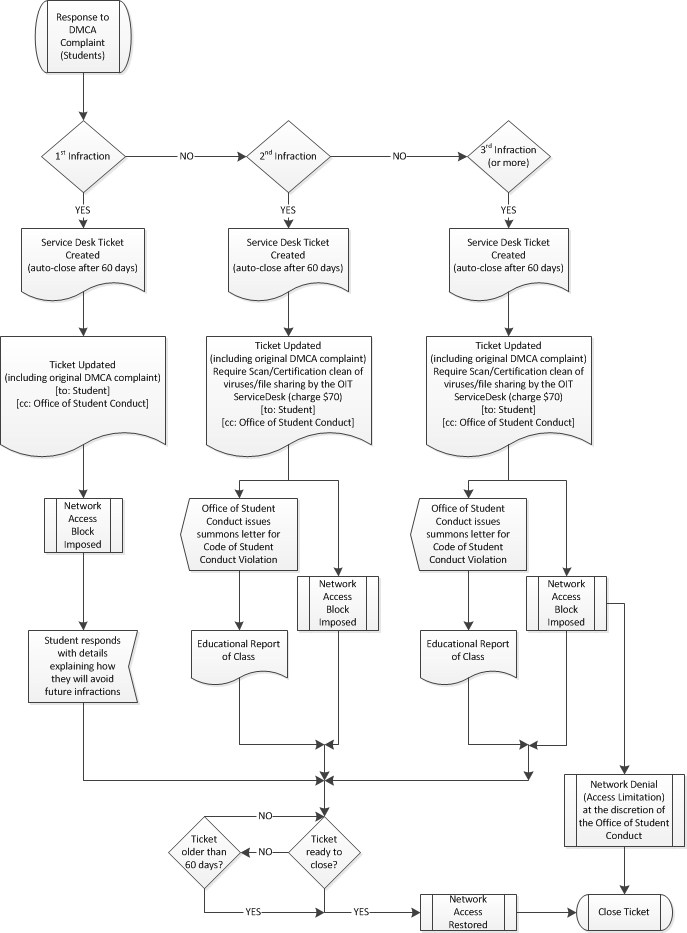Higher Education Opportunity Act (HEOA)
In accordance with the Higher Education Opportunity Act (HEOA), which was signed into law on August 14, 2008 and which went into effect on July 1, 2010, The University of Alabama’s Office of Information Technology has defined procedures and plans needed to comply with the Information Technology portions of the HEOA.
The Office of Information Technology also sends a letter to students annually informing them about respecting copyright. You can view a web version of the letter here.
Purpose
In accordance with the Higher Education Opportunity Act (HEOA) which was signed into law on 14 August 2008 and which went into effect on 1 July 2010, The University of Alabama’s Office of Information Technology has defined procedures and plans needed to comply with the Information Technology portions of the HEOA.
Scope
This document applies to all users, faculty, staff, students, and visitors, of the University of Alabama networks, wired and wireless.
Requirements
HEOA, in a large part, deals with the means of effectively combating the unauthorized file sharing of copyrighted materials on campus networks, specifying general requirements for all U.S. colleges and universities to include in their written plans:
- An annual disclosure to students describing copyright law and campus policies related to violating copyright law;
- A plan to “effectively combat” copyright abuse on the campus network using “one or more technology-based deterrents;”
- A list of “alternatives to illegal downloading.”
Annual Disclosure
The University of Alabama’s Office of Information Technology will send an e-mail message to all students, during the fall of each year, to refresh their memories on copyright laws and campus policies, as part of the compliance office’s annual reporting.
Technology Deterrents
The University of Alabama has implemented several technology-based deterrents to help combat illegal file sharing (distribution) of copyrighted materials.
- The University operates and maintains bandwidth packet shapers which can limit the throughput of popular file sharing programs.
- The University has a registered DMCA agent that receives and actively responds to all DMCA complaints.
- The University employs intrusion detection and prevention systems to detect and block certain file sharing applications and malware seeking to take control of or steal sensitive information from University owned computers.
Alternatives to Illegal Downloading
As part of the Annual Disclosure in the “Annual Disclosure” section, each student will be sent a link to the Educause list of legal and legitimate sites for content downloading – http://www.educause.edu/legalcontent.
Revisions
- July 2010 – Initial document
- August 2010 – 0.8 Inclusion of draft Letter to the Students
- August 2010 – 0.9 Inclusion of Copyright Infraction Response Procedure
- September 2010 – 1.0 Approval of the HEOA Compliance plan
- October 2010 – Publishing of the Plan on the Office of Information Technology’s Web site
- September 2013 – 1.1 Change of office name from “Office of Student Judicial Affairs” to “Office of Student Conduct”
Appendix of Process
